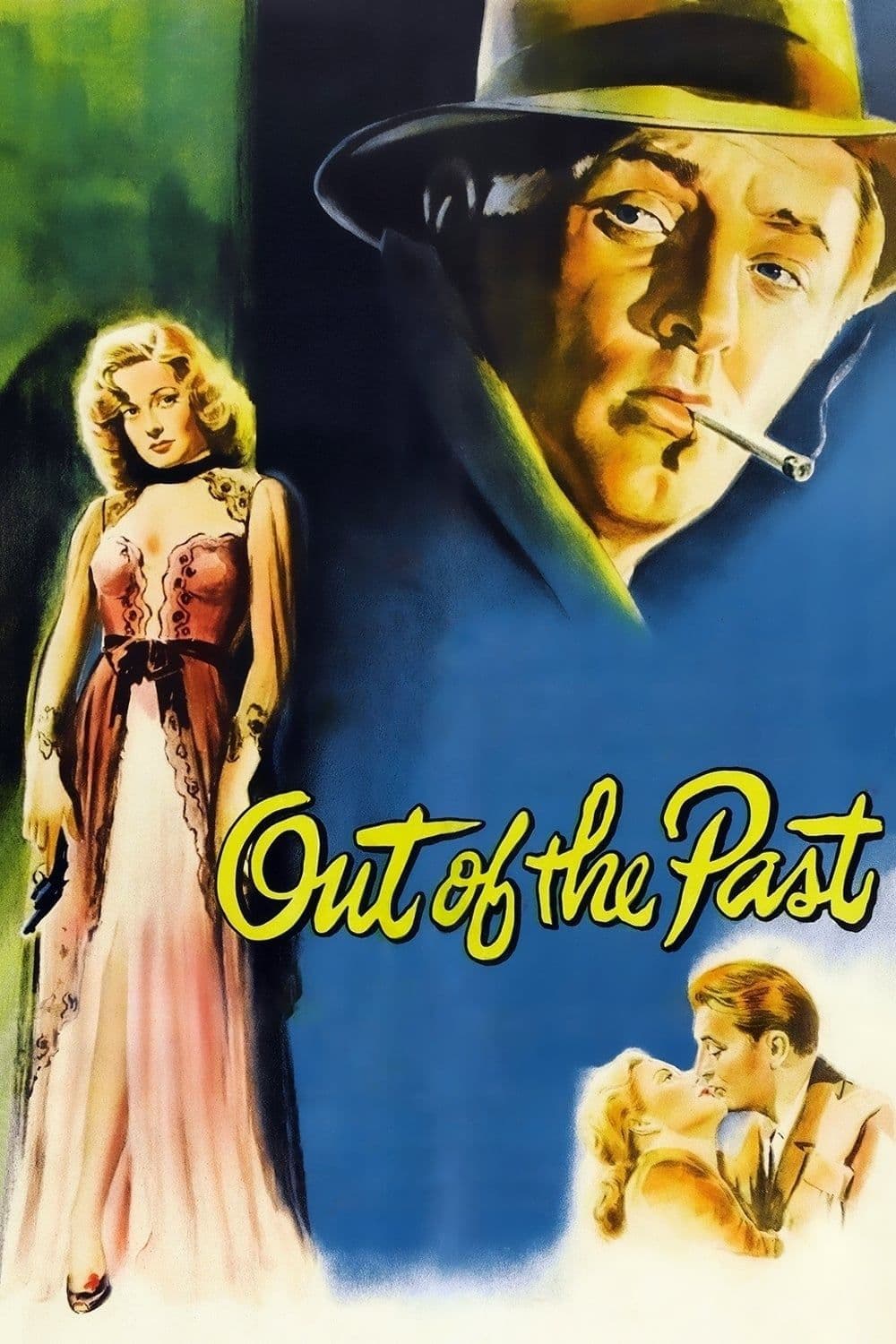
Out of the Past
1947
Rate this movie
Average: 0.00 / 5
(0 votes)
Director
When Geoffrey Homes published "Build My Gallows High," he probably didn't expect such sudden success for his strictly hard-boiled novel. Yet, in that raw and disillusioned work, permeated by the cynicism and fatalism that would define an era, director Jacques Tourneur sensed an extraordinary cinematic potential, immediately believing in the novel's narrative core to the extent of entrusting the screenplay to Homes himself (alias Daniel Mainwaring), an uncommon choice for the time, which ensured the film a near-literal faithfulness to the original spirit.
The result is, unequivocally, one of the darkest and most captivating noirs ever produced in Hollywood. It's not merely a matter of atmosphere, though this is dense and oppressive like few others; the work distinguishes itself above all thanks to Tourneur's flair, who used all his European nuance to purge his work of rigid Hollywood canons. His direction, imbued with the same moral ambiguity and sense of inevitability that had permeated the works of German Expressionist masters, from Fritz Lang to F.W. Murnau, sublimates the threat by concealing it in shadow rather than exhibiting it in full light. His cinema is an art of suggestion, where chiaroscuro is not a mere stylistic flourish but a mirror of a troubled human soul, elevating "Out of the Past" to an almost metaphysical dimension of noir, where fate is not just a stroke of bad luck, but an almost preternatural force that draws the individual towards a predetermined abyss.
The story is that of a former private investigator, Jeff Bailey, who, in a desperate attempt to escape the clutches of a murky and violent past, has remade his life as a gas station owner in a small, sleepy Californian town. Yet, like in any modern Greek tragedy, his past will inexorably return to haunt him. A femme fatale will reappear, like a seductive and lethal ghost: Kathie Moffat, the archetype of the enchanting and destructive siren, who had previously entangled him in a nasty murder case and, above all, had inevitably made him lose his head. Her return is not a mere narrative pretext, but the true engine of a descent into hell with no possibility of redemption.
The woman will again try to drag him towards perdition, weaving a web of deceptions and betrayals from which Jeff will soon find himself unable to disentangle himself, trapped in a spiral of events that will lead him to a tragic choice to be made – or perhaps, more accurately, to a choice already made by a mocking fate. The flashback narrative structure, a fundamental stylistic hallmark of classic noir, accentuates the inevitability of ruin: Jeff is recounting his story after the events have unfolded, suggesting from the outset that there will be no happy ending, but only the bitter, ineluctable consequence of his passions and mistakes.
"Out of the Past" is a work in black where sordid passions creep in the shadows, not only metaphorically but literally, thanks to Nicholas Musuraca's masterful cinematography. He sculpts the scene with sharp flashes of light that pierce the deepest darkness, creating a visual landscape that reflects the moral landscape of the characters. Greed, desire, vengeance, and despair intertwine in a macabre ballet that perverts the fragile souls of men, leaving them worn out and defeated. The film stands as an emblem of the post-war disillusionment that permeated America, an era when unrestrained optimism had given way to deep cynicism and distrust towards institutions and human relationships. The American dream is shown here in its most corrupt and illusory guise.
It is a harsh and passionate film, whose intensity is magnificently embodied by Robert Mitchum, already in a state of grace, in the full expressive maturity of his iconic figure as "the world-weary man." His Jeff Bailey is not the infallible hero or the astute and moralistic investigator like Philip Marlowe. He is a consumed man, whose fatalism is reflected in his perpetually troubled gaze, in his relaxed yet irremediably tense posture. His performance is an ode to resignation, a perfect blend of melancholy and indolent virility that makes him the epitome of the noir anti-hero, capable of magnetic charm even in his blatant self-destruction. His laconicism, his ability to communicate an entire world of weariness and disillusionment with a single gaze, makes Jeff Bailey one of the most unforgettable characters in cinema's gallery of the damned. "Out of the Past" is not just a classic; it is a cornerstone, a masterpiece that continues to resonate for its brutal honesty and its unparalleled stylistic elegance.
Country
Gallery
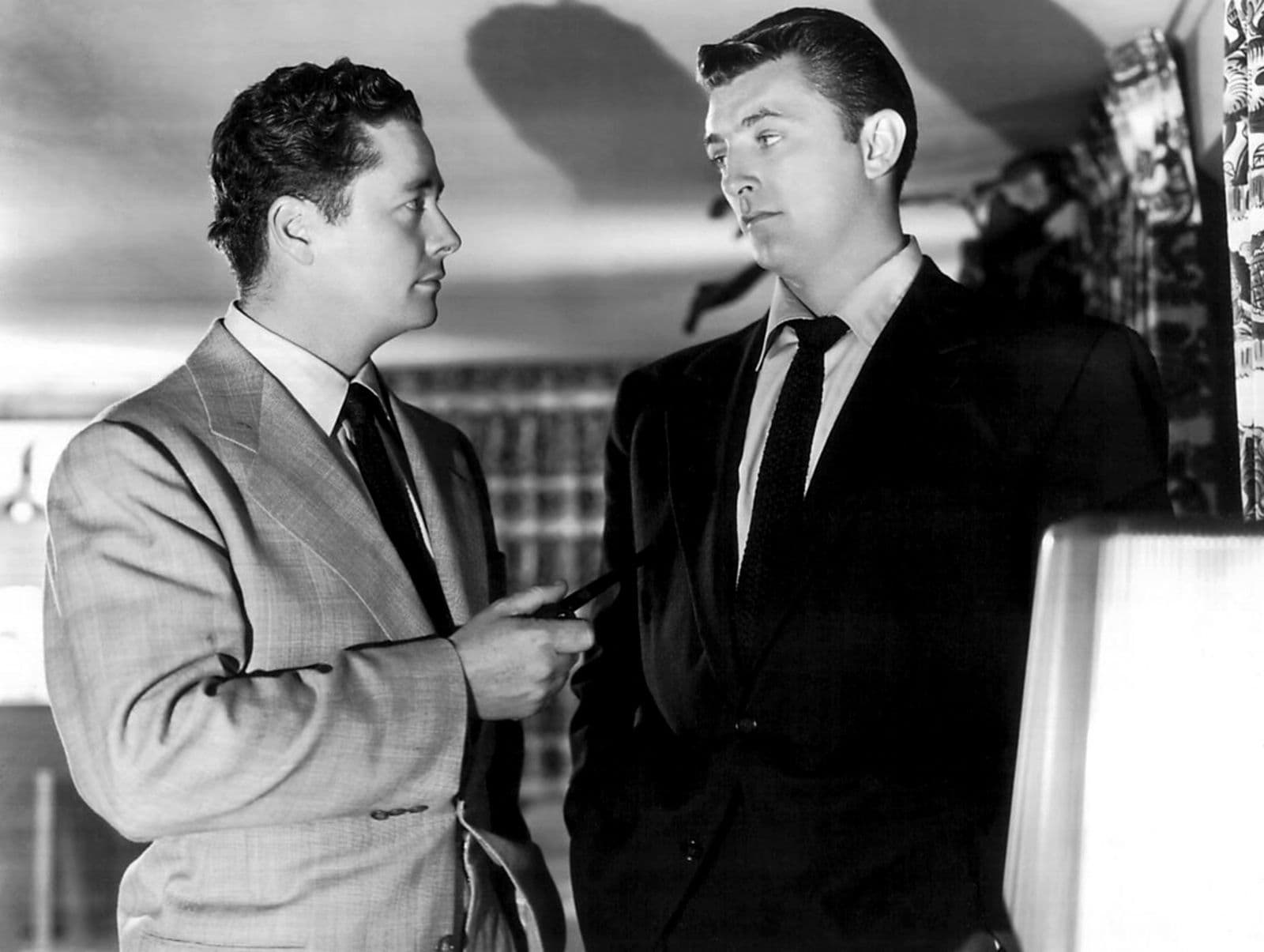
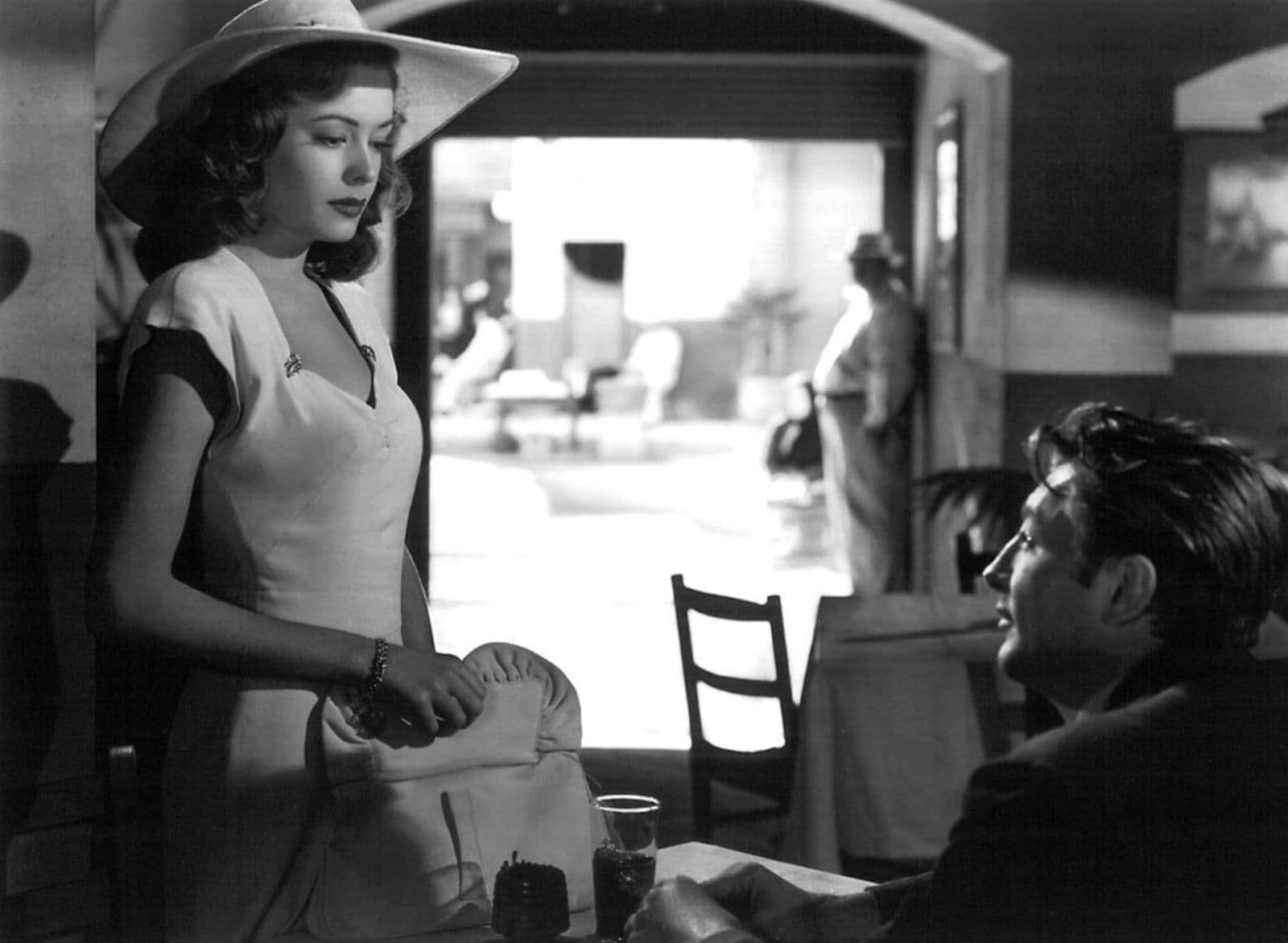
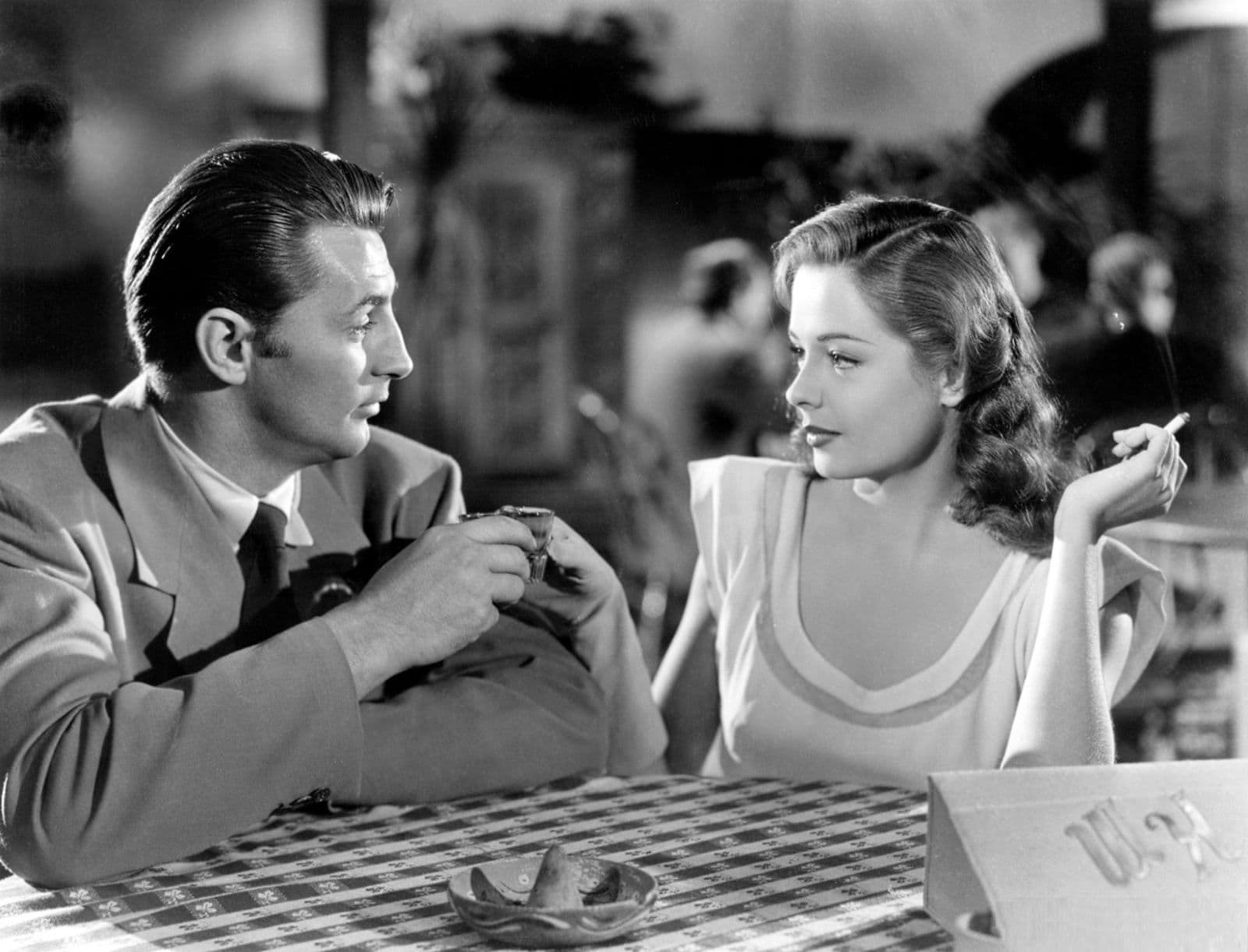
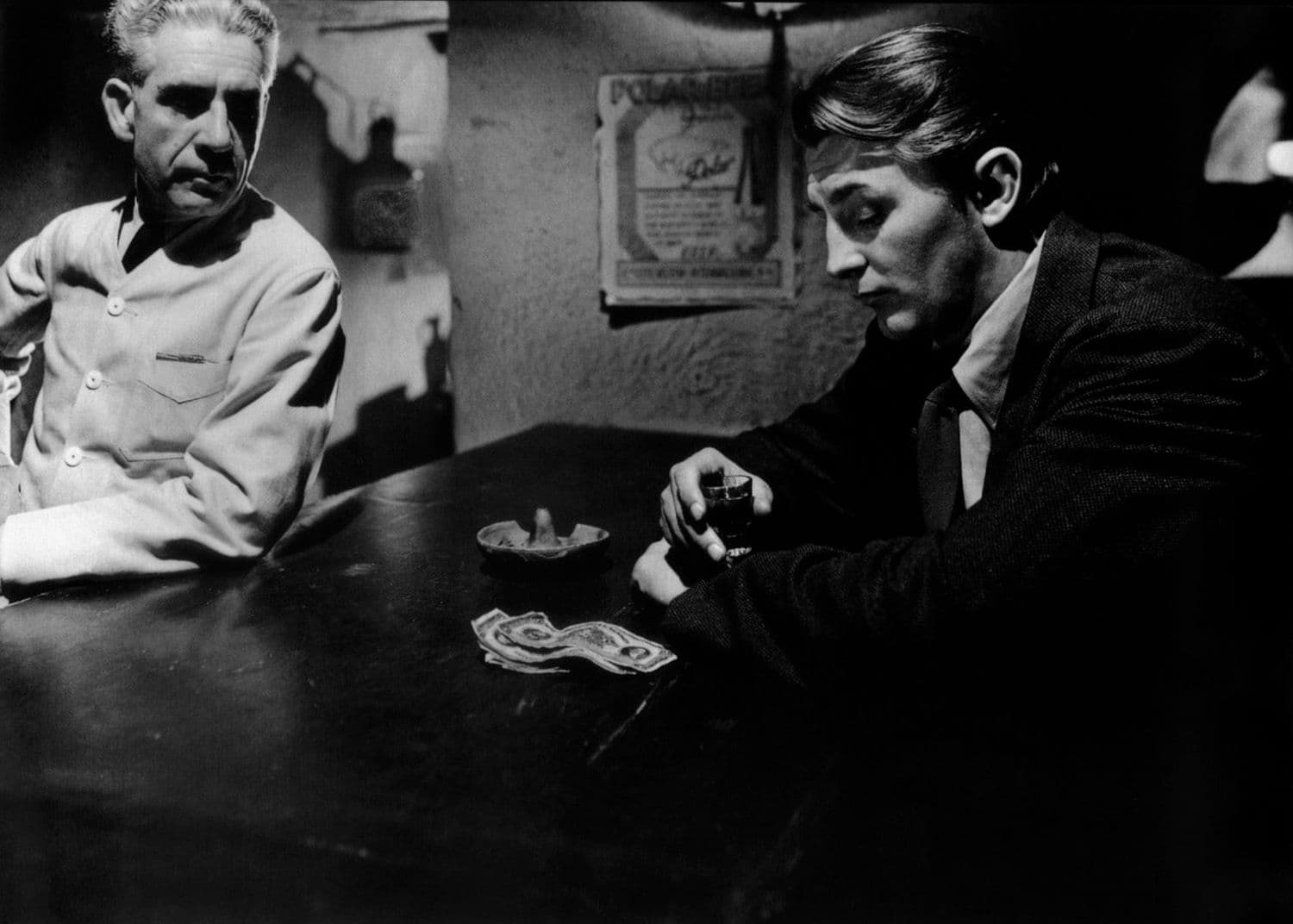
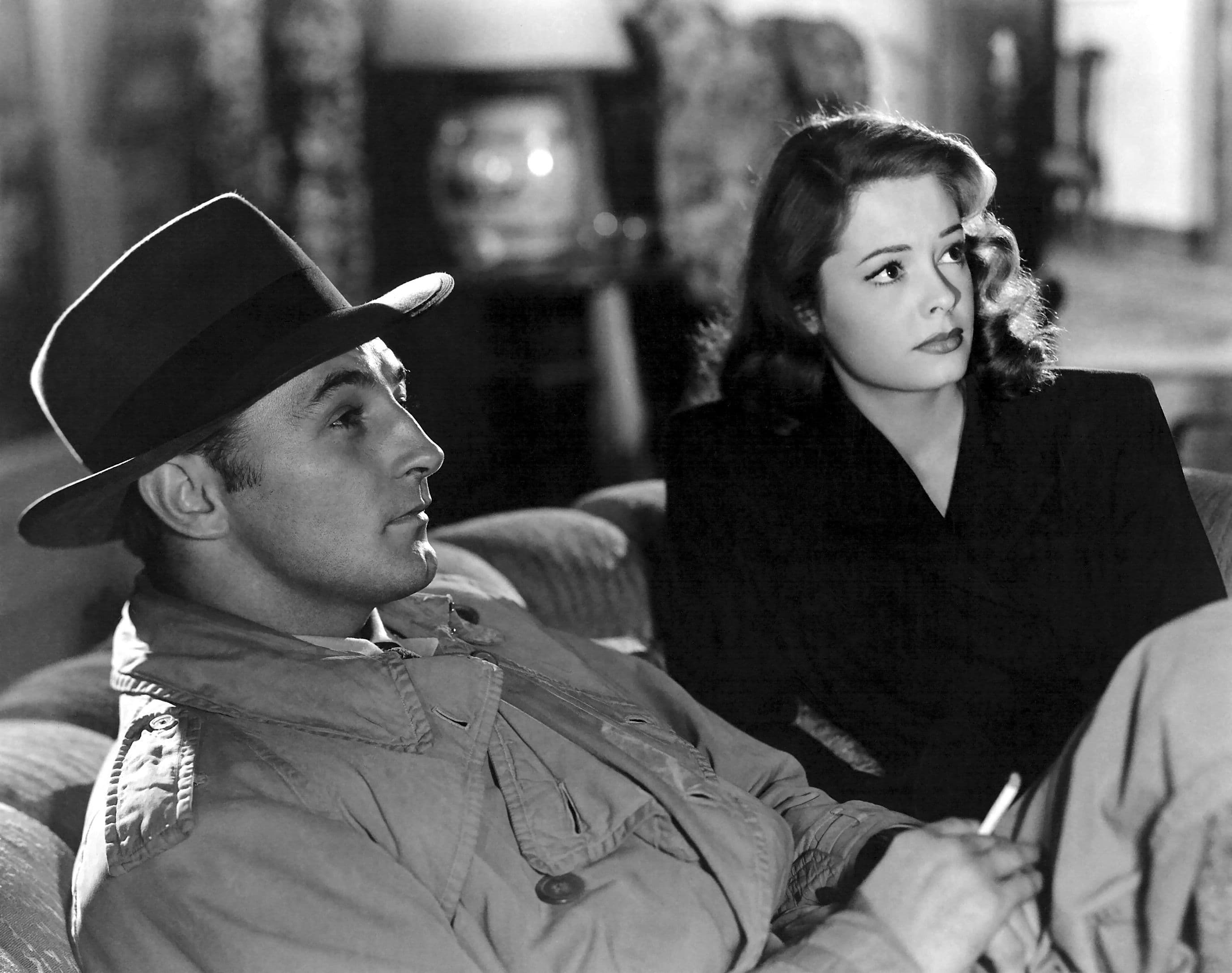
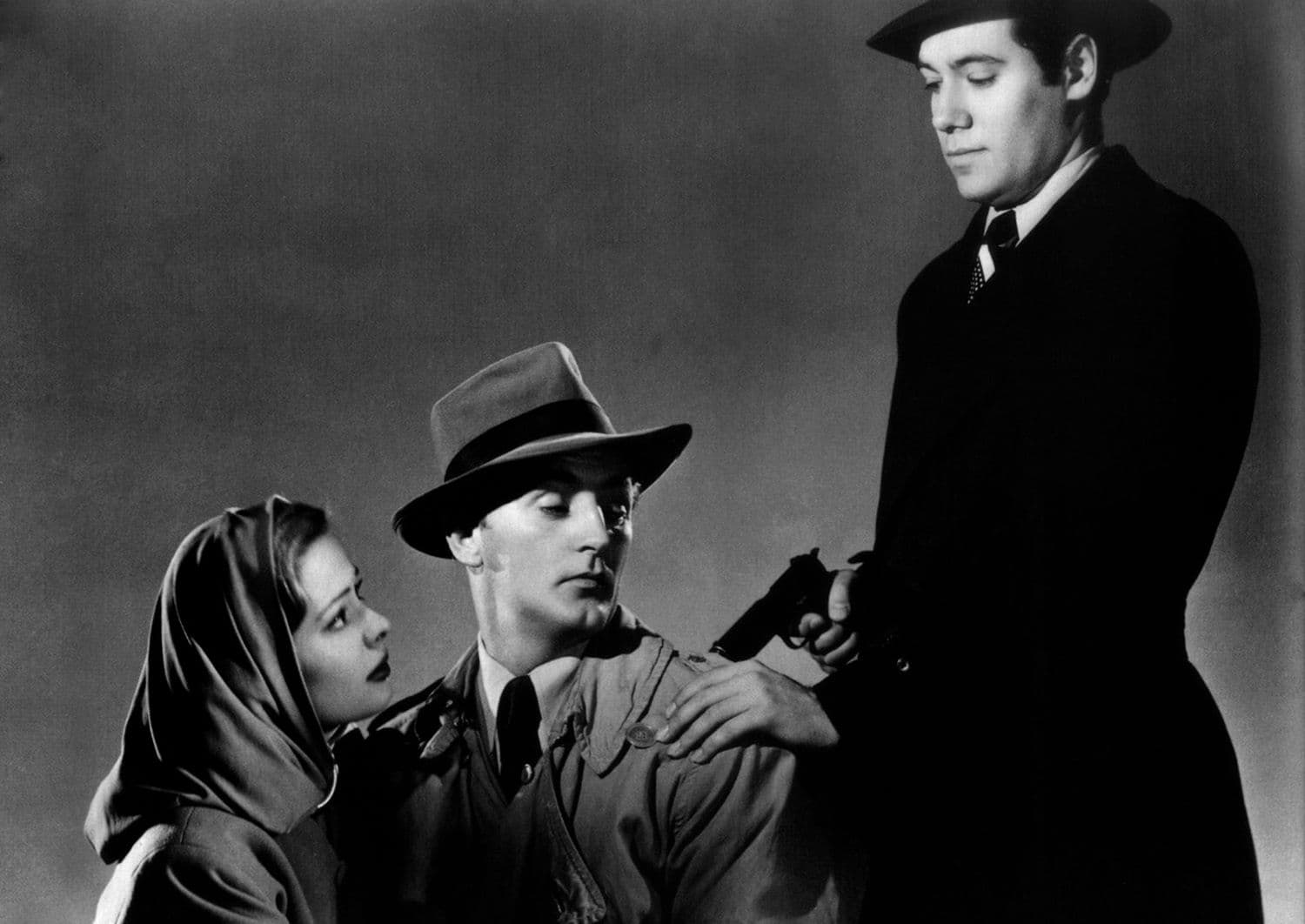
Comments
Loading comments...